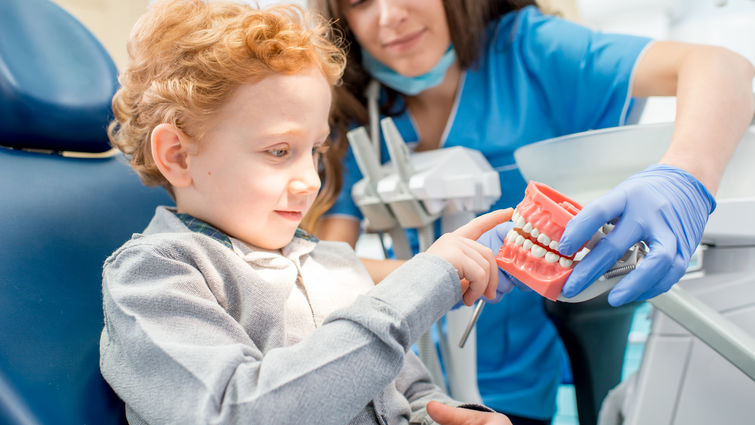
Dental trauma can be more than a chipped tooth — much, much more. Dental trauma comes in many shapes and sizes, according to Jung-Wei Anna Chen, DDS, PhD, program director of the Advanced Specialty Education Program in Pediatric Dentistry and professor of pediatric dentistry at Loma Linda University School of Dentistry.
Here are five myths regarding dental trauma.
Baby teeth are always harmless.
Infants six months and younger can experience early onset teeth with a condition known as Riga-Fede disease, Chen says. Infants typically born with premature teeth are prone to rub the tongue against the teeth and can cause various tears and ulcers in the mouth. Chen has seen large pieces of the tongue removed or destroyed due to the constant rubbing. She encourages parents to schedule a dental exam for their infants, with the possibility of either removing the teeth or grinding the teeth down to reduce further damage.
It's ok to eat or chew as normal even though my mouth is still numb following a dental procedure.
It’s common for most patients to wait before chewing following a dental procedure. However, there are others — often children — Chen says, “who find themselves trying to wake up the teeth and lip, by chewing, pinching or hitting their tongue, cheek and lips” which leads to more swelling and, potentially, to lacerations. It is best to follow the instructions provided by your dentist and avoid trying to chew, bite, pull or tug at the lip or cheek until the numbness subsides.
Self-injury to the mouth is not bad if it’s not done all the time.
“Self-injury happens more frequently than most people would assume,” says Chen. The reasons vary; however, most are attributed to either a psychiatric or developmental disorder (i.e. depression or autism), a genetic disorder such as Lesch-Nyhan syndrome (the main sign and symptoms are related to self-mutilation such as biting of the lips, tongue, fingers and head banging) or even a pain sensing deficiency. Chen recommends patients speak with their healthcare provier about behavioral management, pharmacological treatment or restraints, depending on the condition.
It’s just a few teeth, where’s the harm in that?
Even with infants who only have a few teeth showing, parents need to be mindful of what their baby places in their mouth. Infants as young as six months old can experience an electrical burn after chewing on a power cord. Chen says it’s easy for crawling infants to pick up an electrical cord from a home computer or other devices if not properly stowed away. “If the infant bites into a power cord, the electrical shock can reach 3,000 degrees,” says Chen. An electrical burn can cause deformity of the mouth, an uneven smile, nerve damage, lacerations and potentially trauma to other parts of the body. It’s important for parents to prevent this from happening and take a child with such a wound to the emergency room immediately for assessment and treatment.
The family pet would never hurt us.
“The simple truth is children and animals don’t have too much patience for each other,” Chen says. A dog or cat can easily become aggravated if a child pulls its tail or ears or gets too close to the face of their pet. “Most of the time, a pet may react in self-defense,” Chen says. Dogs tend to bite, shake and pull at the object they are grabbing and can create deep wounds in the face. Chen recommends that both adults and children pay close attention to their family pets and give them the space they need.
Thankfully, most dental trauma incidents are preventable. If you experience a head injury, Chen recommends X-rays or CT scans to check for a concussion or internal bleeding. If you need more information about these myths or any other dental conditions, check with your dental healthcare provider.
